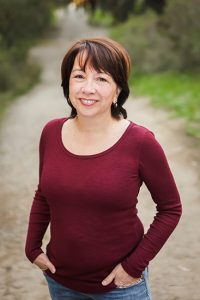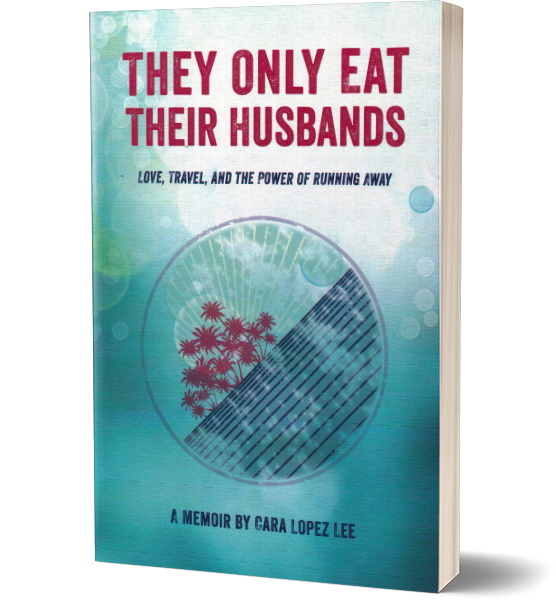March 29, 2008
Bok Sa Town, Toishan, China
Yesterday, I hoped to find the village of my great-grandfather, Ma Bing Sum. I had thought he was from the village of Gong Hao. But it turns out that Gong Hao isn’t a village; rather, it’s a small district of many villages. Our hotel’s owner, Mr. Wong, knew of one village where a 99-year-old man still lives, and he suggested we go there, in the remote hope that the man might have known my great-grandfather. It seemed unlikely, as Ma Bing Sum left in 1908, a year before the old man was born. Still, I was eager to meet someone who could tell me about the ancient traditions of the region. So we called ahead, and Old Mr. Ma was expecting us.
A driver with a minivan took us several kilometers to a small cluster of villages. More villages were scattered in the distance, amid endless rice paddies where tiny green shoots poked out of square plots filled with water. Grey hills floated in the misty distance. We turned down a dirt lane to the tiny village of Git Non, and stopped in front of a small house. Before I knew what was happening, two or three people shepherded us into a tiny courtyard already crowded with eight people or so.

More villages were visible across endless rice paddies, where tiny green shoots poked out of square plots filled with water.
Old Mr. Ma was sitting in a wheelchair, but he rose to greet us. He was thin, his face sunken with age, yet he seemed filled with unusual energy, and quickness of movement and speech, for someone nearing 100. Several hands pulled at my arms and shoulders, as competing voices quacked and rang and chirped in my ears, insisting I sit in the plastic chair across from Mr. Ma. A tiny paper cup of tea was thrust into my hand. I was startled when a string of firecrackers exploded outside, in celebration of the Qing Ming festival. Everyone put their hands to their ears. Smoke drifted into the courtyard, stinging my eyes and nose.

Mr. Ma was thin, his face sunken with age, yet he seemed filled with unusual energy, and quickness of movement and speech, for someone nearing 100.
My translator, Fiona, sat between Mr. Ma and me. Women of varying ages, from teens to middle years, gathered around us. The man spoke in an old Toishanese dialect, so Fiona, too, needed a translator; one of his young granddaughters stepped in. Half of the time everyone was chattering at once, eager to help, excited to meet a foreigner with ties to their village, however tenuous. Even Fiona seemed amused, overwhelmed, and deafened by the commotion. “It’s louder than the firecrackers,” I told her.
The group explained the reason for the crowd: today was Mr. Ma’s 99th birthday. They invited us to stay for the celebration after we finished our little talk. We politely declined, because I was unintentionally becoming the center of attention and I didn’t want to steal the spotlight.
Eager to let them get back to their party, we began telling the old man about my great-grandfather. I handed him a few photos and a copy of a letter my Uncle Roy once sent from Hong Kong to his father in El Paso; it was written in Chinese. After studying these items for several minutes, the old man let out a loud sound of surprise, echoed by everyone around us: “Hoh! Hoh! Hoh!” Mr. Ma recognized the characters of my Uncle Roy’s Chinese name, Ma Tsi Kaye. I was doubtful, because Roy had never been to Gong Hao. But the old man was adamant – not that he’d met my uncle, but rather, that he’d seen the name in the village’s book of Ma family ancestors, an entire book dedicated to the Ma family lineage.

We began telling the old man about my great-grandfather.
Relatives of the same surname tend to gather in one village. Not only was this a Ma village; as it turned out, everyone in this village was a Ma from my great-grandfather’s clan. Not close relatives, mind you, but relatives. All Roy had known was that his father was from Gong Hao, but Gong Hao comprised some eleven villages, seven of them Ma villages. It was through sheer luck that I had happened on the exact village of Ma Bing Sum!
Someone brought out a red book, filled with line after line of Ma family names, going back many generations. Yet Mr. Ma quickly found the page where Ma Bing Sum’s name was written. Ma means “horse.” Sum means “forest.” I’m not sure what Bing means, and Fiona didn’t know either. Under his name were the names of the three eldest of his four sons from his first marriage. Mr. Ma pointed out my uncle’s name, Ma Tsi Kaye: Uncle Roy’s father had named each son after one of the horses of Genghis Khan.

Someone brought out a red book, filled with line after line of Ma family names, going back many generations.
There was more: in his youth Mr. Ma had, indeed, met Ma Bing Sum. He explained that, although my great-grandfather had moved to El Paso, Texas, he had returned to Git Non once or twice. Old Mr. Ma was probably a teenager or young man at the time. He remembered that Ma Bing Sum had brought a son and two daughters with him, possibly his only children at the time. Most important, he remembered that Ma Bing Sum had a Mexican wife. This unusual fact clinched it: these were too many details to be coincidental. I felt moved close to tears. Why? For a man I never knew, whom my grandmother and father recalled with bitterness? I don’t know why. But a strong chord pulled at my stomach, where my belly button linked me to the past.

He remembered that Ma Bing Sum had a Mexican wife. This unusual fact clinched it: these were too many details to be coincidental.
I waited patiently through another lengthy exchange – it took several comical minutes to pass words from me, to Fiona, to the granddaughter, to Mr. Ma, and back again, often yielding an answer of just one halting sentence. Finally, Fiona turned to me excitedly and said that my family’s old house was just a few doors down, and this family was exhorting us to go see it. “Wow, this is a bonus!” Fiona said. I couldn’t agree more.
We arranged to come back and talk to Mr. Ma at greater length within the next couple of days. Before we left, I offered to take birthday photos of him with his family; while we’d been talking, more relatives had begun arriving from out of town. He insisted we take the photos in front of the ancestral hall. Mr. Ma put on a suit jacket and someone handed him a cane. Then he walked with slow dignity to the community building, just a few doors down. Fiona told him, “You still look handsome after so many years.” It was true.
Everyone gathered around him for several photos, and then asked me to join them for the final shot. It’s ridiculously easy to pick me out in the picture: some people think I look Chinese, but never in China.


Mr. Ma insisted we take the family photos in front of the ancestral hall. It’s ridiculously easy to pick me out in the right-hand picture.
After that, we walked down the path, past laundry hung on bamboo racks, and brick homes the color of soot, to see my ancestral home standing on the corner: one of the largest of the village’s few dozen buildings, the largest at the time it was built. Mr. Ma and his family had explained, “Your family was the richest family in the village.”

My ancestral home stood on the corner: one of the largest of the village’s few dozen buildings.
The wooden shutters of my great-grandfather’s two-and-a-half story house are now cracked and hanging askew, and the wooden double-doors of the main entrance lie hidden behind two padlocked metal doors. It wasn’t possible to go inside. The wife of our driver said she used to play inside the abandoned house as a girl, and she recalled that it was elegant. The exterior combined different styles popular in China and America in the early 1900’s, with graceful European-style cornice work along the roof’s edges.

The house combined styles popular in China and America in the early 1900’s, with graceful European-style cornice work along the roof’s edges.
The house stood near the front of the village, near the fish-stocked pond typical of Toishan. Next to the pond were several family vegetable gardens, planted with ridges of cabbage, carrots, coriander (cilantro), and more. The square rice paddies beyond went on for kilometers. All the village households huddled tightly together, for mutual protection and social unity. And they all faced one direction, more or less: toward the pond. In Feng Shui, water represents fortune, so the homes faced this good fortune to invite it in.

In Feng Shui, water represents fortune, so the homes faced this good fortune to invite it in.
At the front and back of the village stood altars to the ancient earth spirits that guard the village. People make offerings at these altars to keep the village safe and its crops bountiful.

At the front and back of the village stood altars to the ancient earth spirits that guard the village.
While we looked around, one of Mr. Ma’s female relatives brought us a plate of fried dumplings. “M’goi san,” I said. (Thank you.) But Fiona corrected me, “For a gift, you say ‘dou zhe.’” I giggled, repeated the new phrase, and added, “Hou hou mei.” (delicious.) The woman said she was impressed at my efforts to speak Chinese, though I was slightly embarrassed that I knew so little.
However, I didn’t feel uncomfortable, but truly welcomed by these people. Fiona explained that, because I was related to Ma people from this village, “to them you are like family.” This idea pleased me no end. Perhaps that’s because when I was growing up my own family often left me to my own devices. Sometimes I felt like a foster child, passed from house to house. So perhaps I’m always searching for family, everywhere I roam.




